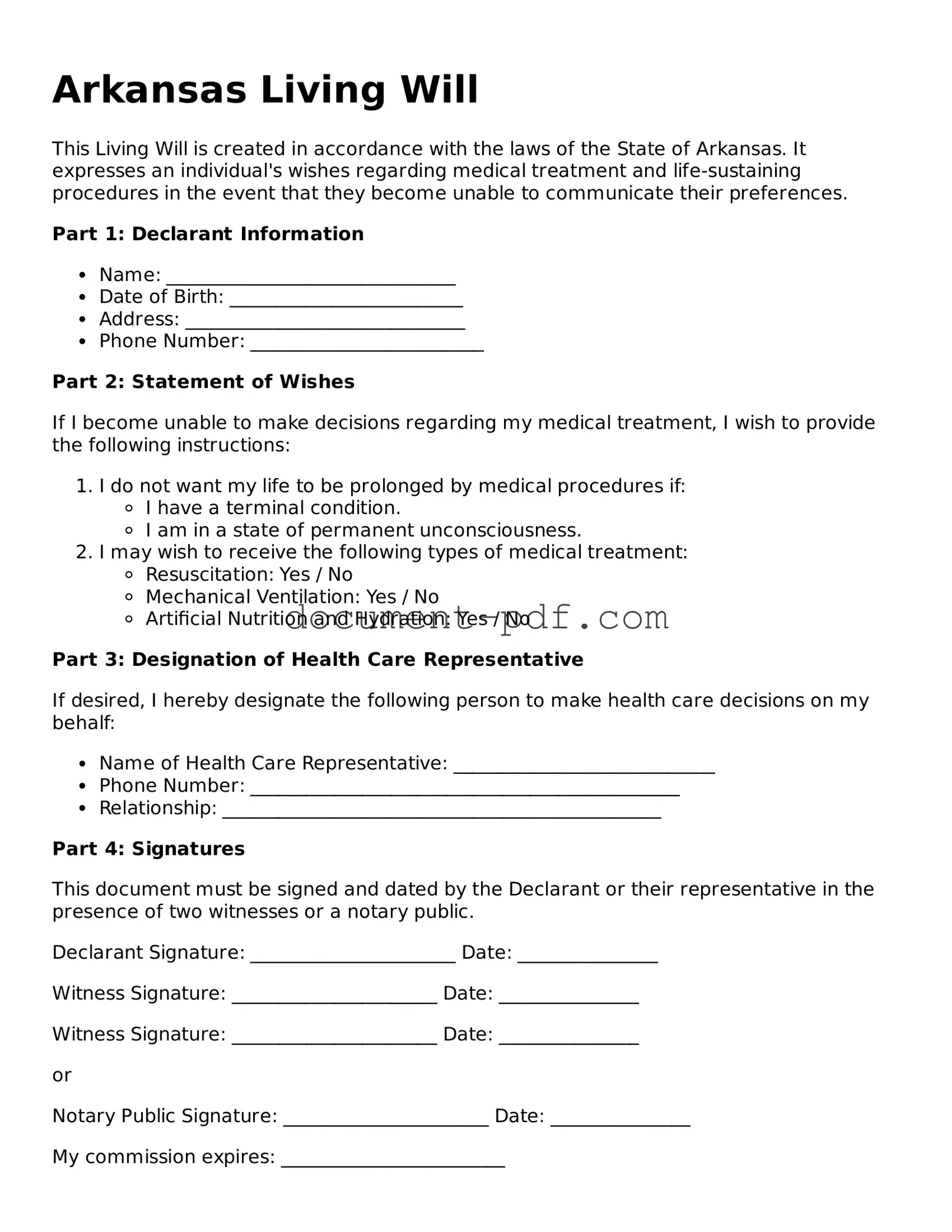Attorney-Verified Arkansas Living Will Template
A Living Will is a legal document that allows individuals in Arkansas to outline their preferences for medical treatment in the event they become unable to communicate their wishes. This form plays a crucial role in ensuring that a person's healthcare decisions are respected, particularly in critical situations. Understanding the importance of this document is vital; take the necessary step to fill out the form by clicking the button below.
Access Living Will Editor Here

Attorney-Verified Arkansas Living Will Template
Access Living Will Editor Here
Finish the form without slowing down
Edit your Living Will online and download the finished file.
Access Living Will Editor Here
or
Click for PDF Form
